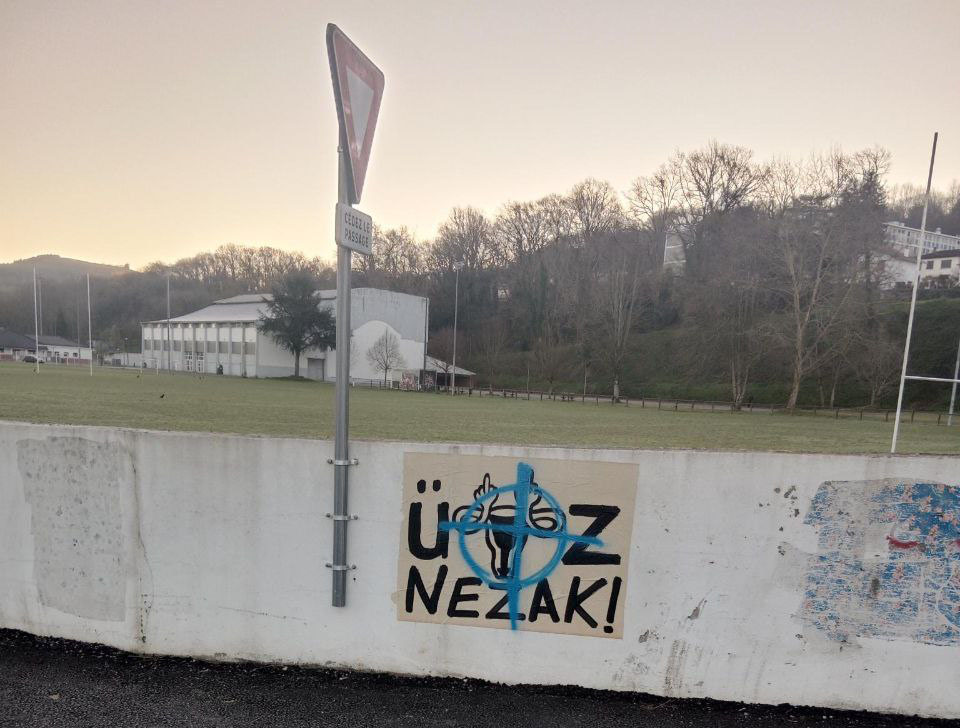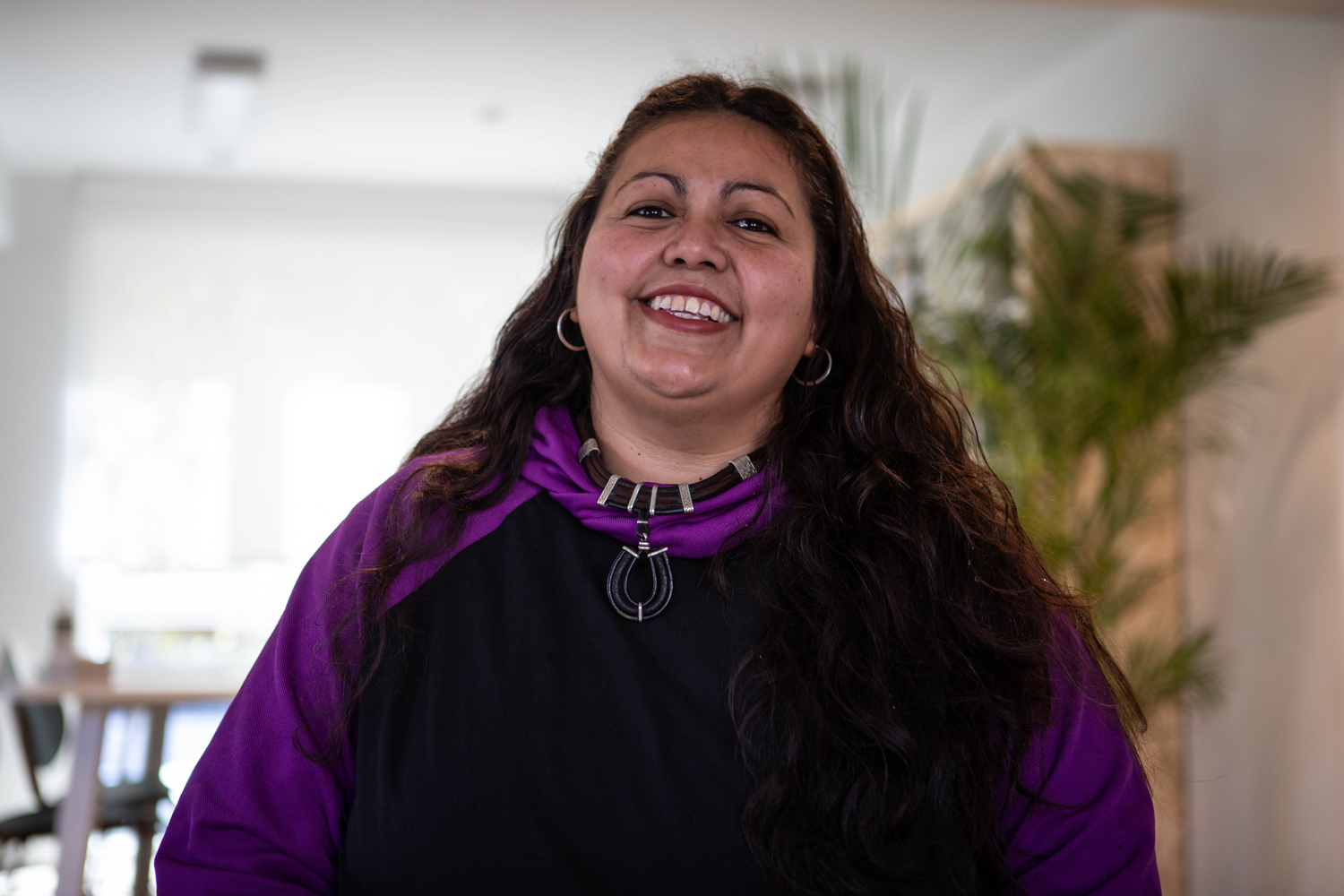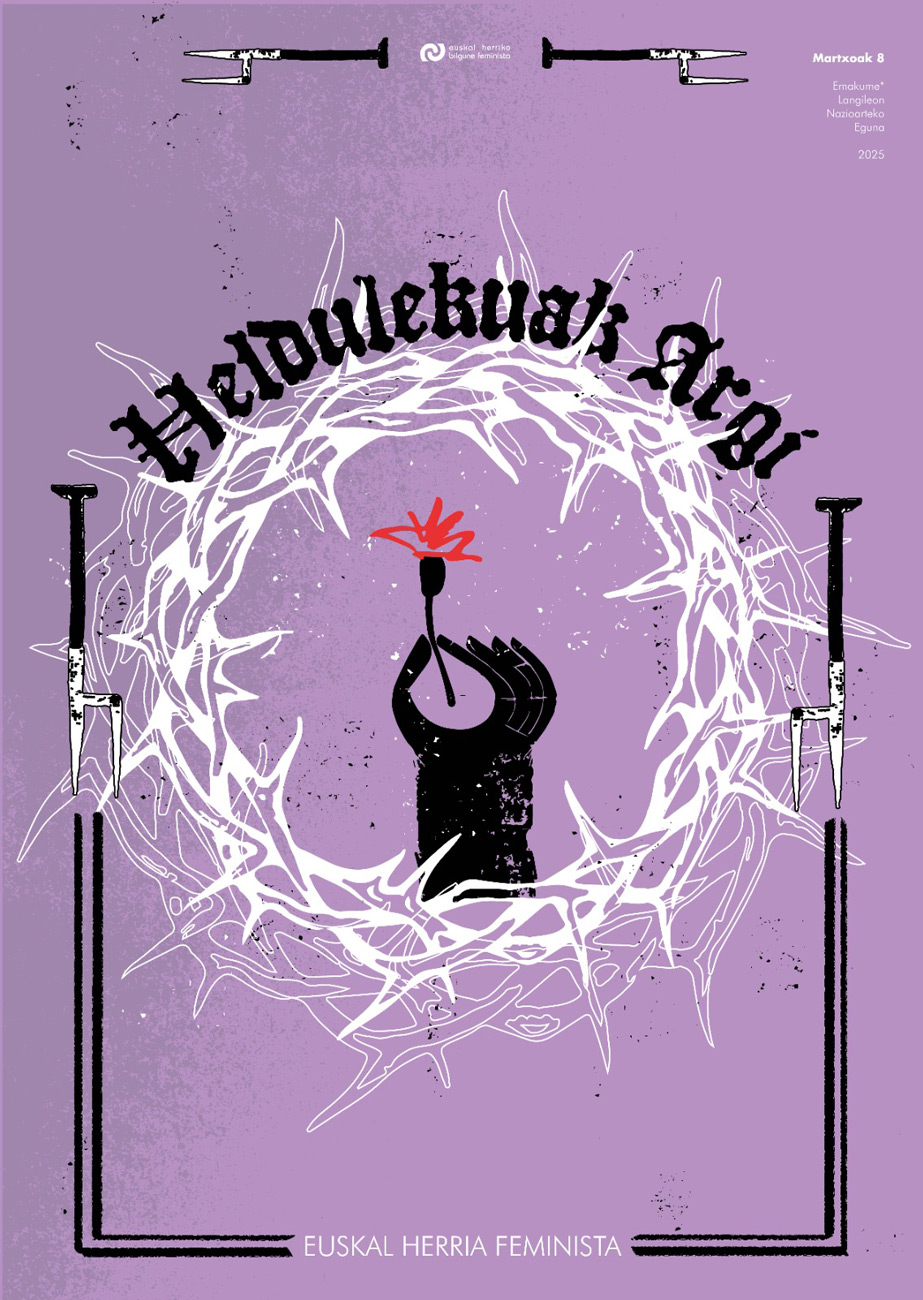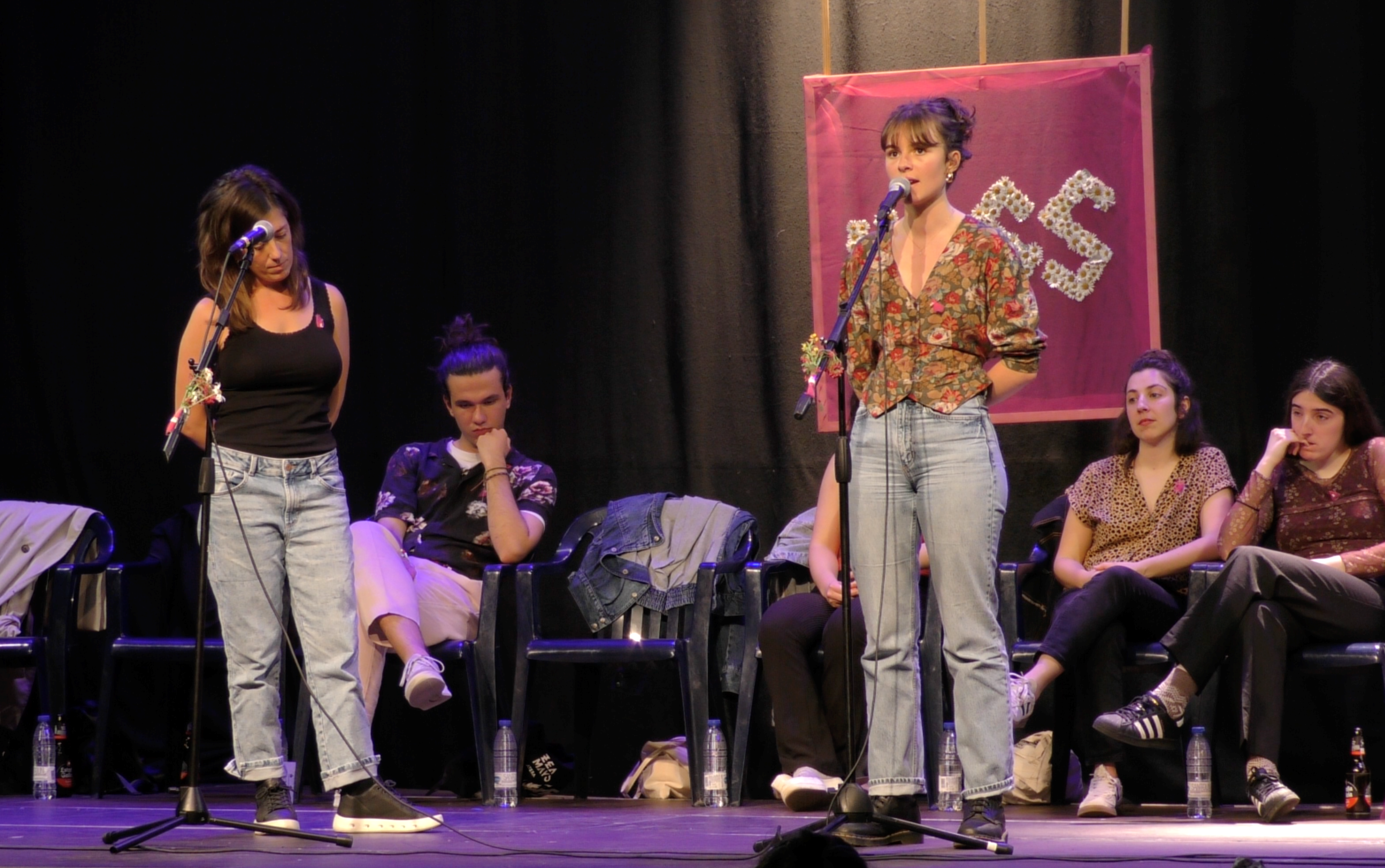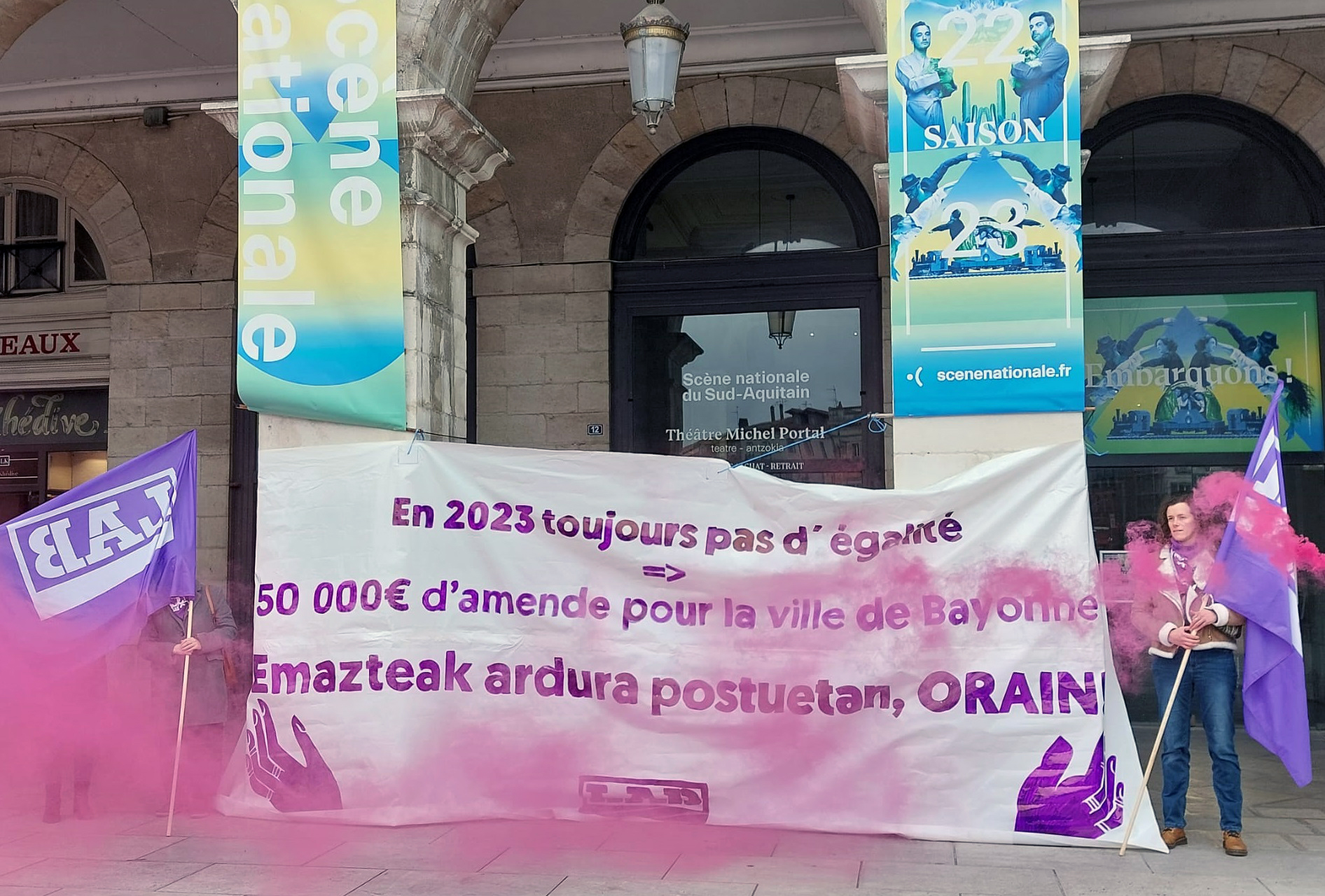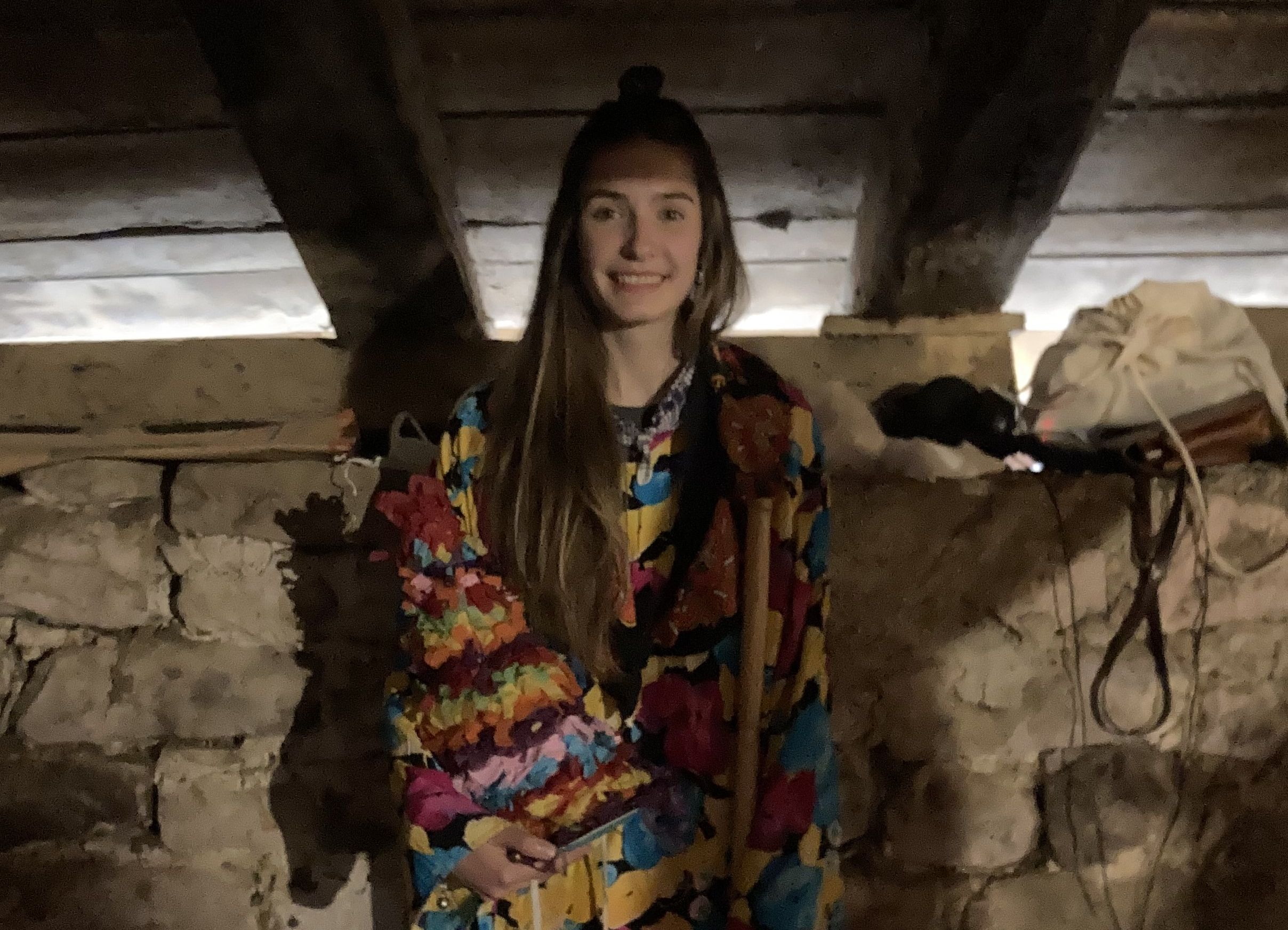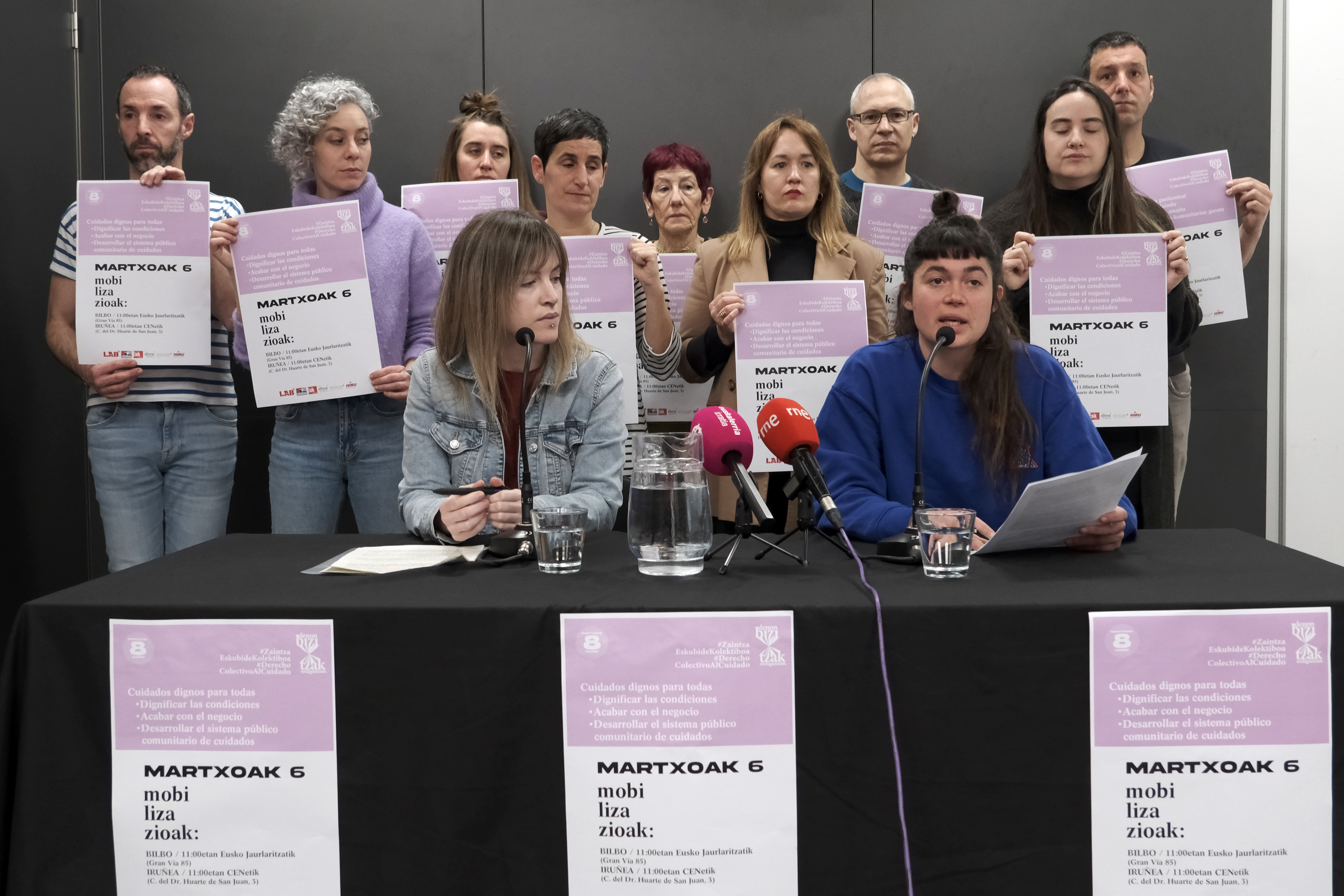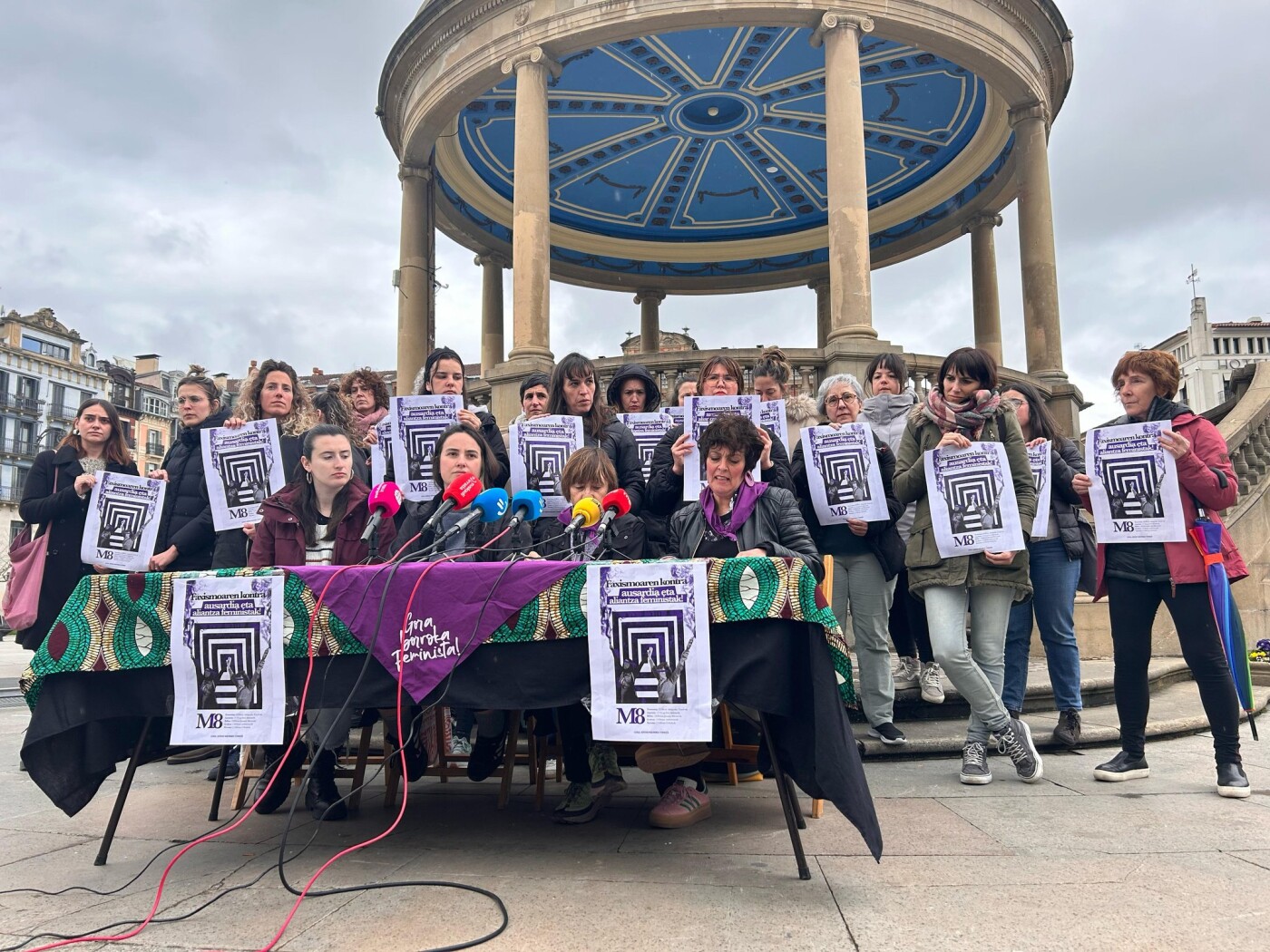"We can't continue sharing spaces with rapists."
- Mayra Acgiovanni and Angela Ocampo are Colombian feminist activists and two women who have managed to survive male violence. They have visited the Catalan countries and have been interviewed by the journal La Directa: see the original here. The CC-by has been translated thanks to the license.

Mayra Acgiovanni and Angela Ocampo, feminist activists from Cali (Colombia), turn around Europe to denounce the patriarchal violence experienced in their country’s national strike and create a network with other groups. Their personal trajectory and gender violence experienced in various Colombian social organizations led them to the creation of La Mandada Feminista, a group that fights for the defense of human rights and collaborates in the organizational processes of women in their region.
Why did La Mandada emerge?
Mayra Acgiovanni: When Angela and I met, we saw that we had broken the mixed organizations that we worked on and struggled for 20 years. We both had human rights experience and suffered gender-based violence within those spaces. We are talking about sexual, psychological and symbolic violence, and this also applies to political violence: our exclusion, not allowing ourselves to take part in certain actions. And in the end, what happened to many of us happened: we exiled ourselves from the very processes of social struggle in which we became a body. I was hurt, but Angela encouraged me to create a space to work from our experience, defending the human rights of women, trans and nonbinary people. In this sense, La Manada is born as a wager.
The Manada played an important role in defending human rights on the Colombian National Scale of 2021.
Ángela Ocampo: In the 2019 Social Explosion, Cali was a national crime laboratory, while still saying that we live in a permanent state terrorism situation. In addition, the influence of the COVID-19 pandemic has realized the pandemic that we have traditionally been defending women to the patriarchy: a violence that took place in the confinement that social isolation showed, that women, feminist people and the one we always live at home. This, coupled with fiscal and health reform, caused great social discontent and we went out into the street. The social violence we are experiencing has overflowed and was unprecedented in the history of strikes in Colombia. We covered mobilizations and concentration points, complaint handling, case management or support in the midst of attacks, among others.
"What happened to many of them happened to us: we exiled ourselves from the very processes of social struggle in which we became a body"
Was state violence applied differently to women's bodies?
A. H.: The figures are worrying: forced disappearance, extrajudicial police executions, abuse of force, illegal detentions, eye injuries, gender violence and sexual dissent. This had a huge influence. We were able to document and identify the manifestations of this patriarchal and racist police violence. A report that gathers the characteristics and conduct of the police shows the existence of a specific cruelty of the feminized and racialized bodies of Colombia. The Colombian police, which is part of the Government's Ministry of Defense, is better a police officer prepared for war, and in Colombia in particular, political thinking, critical thinking and political opposition have always been stigmatized and criminalized.
Why is the state violence suffered by the Colombian people colonial, especially the feminized and racist population?
A. H.: Firstly, in geopolitical terms, because the Colombian State serves the interests of foreign economic and political powers. We live in a colonial country, in a strategic territory for the foreign policy of the global north of the United States, and in a territory that serves to show the results in the indicators of the millennium goals related to international human rights policy in the field of human rights. In Colombia there is a great interest in international cooperation to support peace agreements or social movements. An agenda often prevails. For example, they say that poverty is shrinking, that inequality is increasing, and that gender equity is increasing; to prove it, they use the indicators to their liking. It is important to identify it, since these figures leaving Colombia do not show the profound inequality that still exists, and this, of course, maintains inequality.
On the other hand, it is colonial because it is a state violence, which is different in the case of male cis-heterosexual white and mestizo bodies, which suffer standardized violence (in Colombia, attacks, torture, disappearances, etc., are large judicial assemblies), and what is experienced by feminized and racialized bodies is different. That is not seen or spoken. It is a patriarchal and structural racist violence that combines the colony. It's prior to capitalism, where we find other kind of cruelty to the bodies of feminized people and racism. This differential treatment comes from this colonial wound, precisely, from the hierarchization of lives and beings: some are worth and some are not. There are bodies that are sexually tortured, as well as other forms of torture, and sexual violence is used as a social amendment and as a political sanction.
M. A. Here's another element: the economy and drug trafficking that keep the global north. We continue with this colonial wound. Many indigenous communities suffer strong violence paramilitar.No is only the gold that we were robbed of 500 years ago, colonial wounds continue to occur, there is exploitation and violence continues to be used to further exploit.
"Political violence is not only the right-wing or the status quo over us, but also what people who we hope will be partners in the battlefield do"
And that violence has come within social organizations, as you mentioned. What did they do or what should they do in the face of the macho violence that occurs within the spaces of social struggle?
A. H.: I would say that it is very important to have non-mixed areas so that we can talk about violence. If not, it won't. These non-mixed areas give way. If we do not, nobody will.
Have you been able to identify violence in social or left-wing organizations?
"When we talk about justice, the first thing we have to do is talk to the person who has experienced violence, first we, our needs and our care."
In some progressive Colombian sectors, especially in rural areas, the term feminism is not accepted by ignorance or by adherence to white hegemonic feminism.
A. H.: In rural, indigenous, afro and peasant communities nothing happens that does not happen in leftist organizations. The machismo and sexism with which we are dealing are not taken into account. And it is not accepted that this fight, that of women, is a fight we have given. It is not that European feminists come to us to talk about that, but that we, the women of Abya Yala, have been fighting for 500 years. In addition, feminism is abundant. The Western white is a feminism and black, indigenous, community or popular feminism of Abya Yala. From there we started as La Mandada, who claims our history, our forms, our roots and a historical debt: gender justice or feminist justice. And language should not be a problem. If someone doesn't mean feminism, it's not important, it's important to address the violence we live as women.
We've seen more and more exercises in popular feminist justice: What do you think we should do in the face of aggression? What to do with the aggressors in our daily lives?
M. A. The experience has been created by a collective path of help, and the first thing to consider is that in the center there is a person who suffered violence, not aggrieved. When we talk about justice, the first thing we have to do is talk to the person who experienced the violence and then think about what path they're going to be. First we, our needs, our care. Feminist justice betting is very diverse, with court exercises, but I think the path of public complaint is very strong. But it is thought that it is an integral process, one of the steps of the monitoring process. Justice is a medium and not static, it is different for each case depending on each specific violence.
A. H.: The aggressors must be denounced, we cannot continue to fight with rapists or sexual assailants, sharing the space. This is not unimportant, it is a serious violation of human rights. It is an exercise of consistency with our defence of territory, life and dignity. So we have the patriarchal criminal justice that we have, which works for the most impoverished and racialized, but there are also forms of self-righteousness or feminist justice in which social punishment must be given at the level of aggression. We can't stand a rapist slap six, put one day on the strain, or denounce only as a rapist in public, this is not justice. A rape or sexual assault remains for life in the person who suffered it. This should be contextualized and worked on community processes so that aggressors do not continue to occupy positions of responsibility and have to pay and settle in a concrete way, taking as a reference the health needs of the victimized person.
Martxoak 8an egindako pintaketak gainetik margotu dituzte ikur faxistekin Zuberoako hiriburuan. Horren aurrean elkarretaratzera deitu dute, astelehenean.
Martxoaren 8a Getxo bere bizitokian igaro du: kumbia dekolonial eta antiarrazista topaketa antolatu du Algortako Herriko Tabernan, Abianen, Hija del Nopal DJrekin batera.
Argentinatik Getxora migratu zen Celeste Agüero, kantutegi herrikoi batekin eta poesia xuxurlatzeko... [+]
Mugimendu feministak manifestazioak egin ditu goizean Donostian, Gasteizen eta Iruñean eta arratsaldean Baionan eta Bilbon. Oinarrizko irakurketa partekatu dute, eta horri gehitu diote hiri bakoitzean bertako problematika, eragile eta ekimenen erreferentzia.
Bilgune Feministak Heldulekuak argi, Euskal Herria feminista leloa baliatu du M8an, azpimarratzeko feminismoak ematen dituela “datorrenari aurre egiteko tresnak”, eta gogorarazteko faxismoaren gorakadaren testuinguru hau helduleku horretatik irakurri eta borrokatu... [+]
MAITE: (biharko eguna antolatzen bere buruaren baitan) Jaiki, gosaldu, bazkaria prestatu, arropa garbitu, etxea garbitu, gizon hori jaiki, seme-alabak jaiki, hiru horien gosaria prestatu, haiek agurtu, erosketak egin, lanera joan, seme-alabak eskolatik jaso, merienda eman,... [+]
Festa egiteko musika eta kontzertu eskaintza ez ezik, erakusketak, hitzaldiak, zine eta antzerki ikuskizunak eta zientoka ekintza kultural antolatu dituzte eragile ugarik Martxoaren 8aren bueltarako. Artikulu honetan, bilduma moduan, zokorrak gisa miatuko ditugu Euskal Herriko... [+]
“Kasu, ez gitxu lo!”. Gure denbora eta manerekin baina heldu gira.
Azaroaren 25ean Baionako elgarretaratzera joan ez joan eta autoak nola partekatu pentsatzetik (joan-jina bi oren), bat-batean Lartzabalen elgarretaratze bat antolatu genuen, eta 47 emazte bildu!... [+]
Martxoaren 8a, Emakumeen Nazioarteko Eguna, munduan zehar milioika emakumeontzat berdintasuna, eskubideak eta justizia eskatzeko borroka eguna da. Hala ere, gerrek, gatazkek eta politika militaristen hazkundeak markatutako testuinguru global batean, inoiz baino premiazkoagoa da... [+]
Nahiz eta Nazio Batuen Erakundeak (NBE) 1977an nazioarteko egun bat bezala deklaratu zuen eta haren jatorriaren hipotesi ezberdinak diren, Martxoaren 8aren iturria berez emazte langileen mugimenduari lotua da.
Euskal Herriko Bilgune Feministak deituta elkarretaratzea egin dute Hernanin Iratxe Sorzabali elkartasuna adierazi eta "babes osoa" emateko. Inkomunikatuta egon zen uneak berriz ere epailearen aurrean kontatu behar izatea, "bizi izandakoak utzitako ondorioen... [+]
Lantzeko inauteri txikien kalejira ikusle guztien begietara urtero modukoa izan zen. Txatxoak, Zaldiko, Ziripot eta Miel Otxin herriko ostatuko ganbaratik jaitsi eta herritik barna bira egin zuten txistularien laguntzarekin. Askok, ordea, ez zekiten une historiko bat bizitzen... [+]
Martxoaren 6an 11:00etan Bilbon eta Iruñean mobilizazioak egingo dituzte sindikatuek, patronalak eta Eusko Jaurlaritza zein Nafarroako Gobernua interpelatzeko, zaintza eskubide kolektiboari dagokionez.
Martxoaren 8a hurbiltzen ari zaigu, eta urtero bezala, instituzioek haien diskurtsoak berdintasun politika eta feminismoz josten dituzte, eta enpresek borroka egun hau “emazteen egunera” murrizten dute, emakumeei bideratutako merkatu estereotipatu oso bati bidea... [+]
Martxoak 8a heltzear da beste urtebetez, eta nahiz eta zenbaitek erabiltzen duten urtean behin beren irudia morez margotzeko soilik, feministek kaleak aldarriz betetzeko baliatzen dute egun seinalatu hau. 2020an, duela bost urte, milaka emakumek elkarrekin oihukatu zuten euren... [+]










